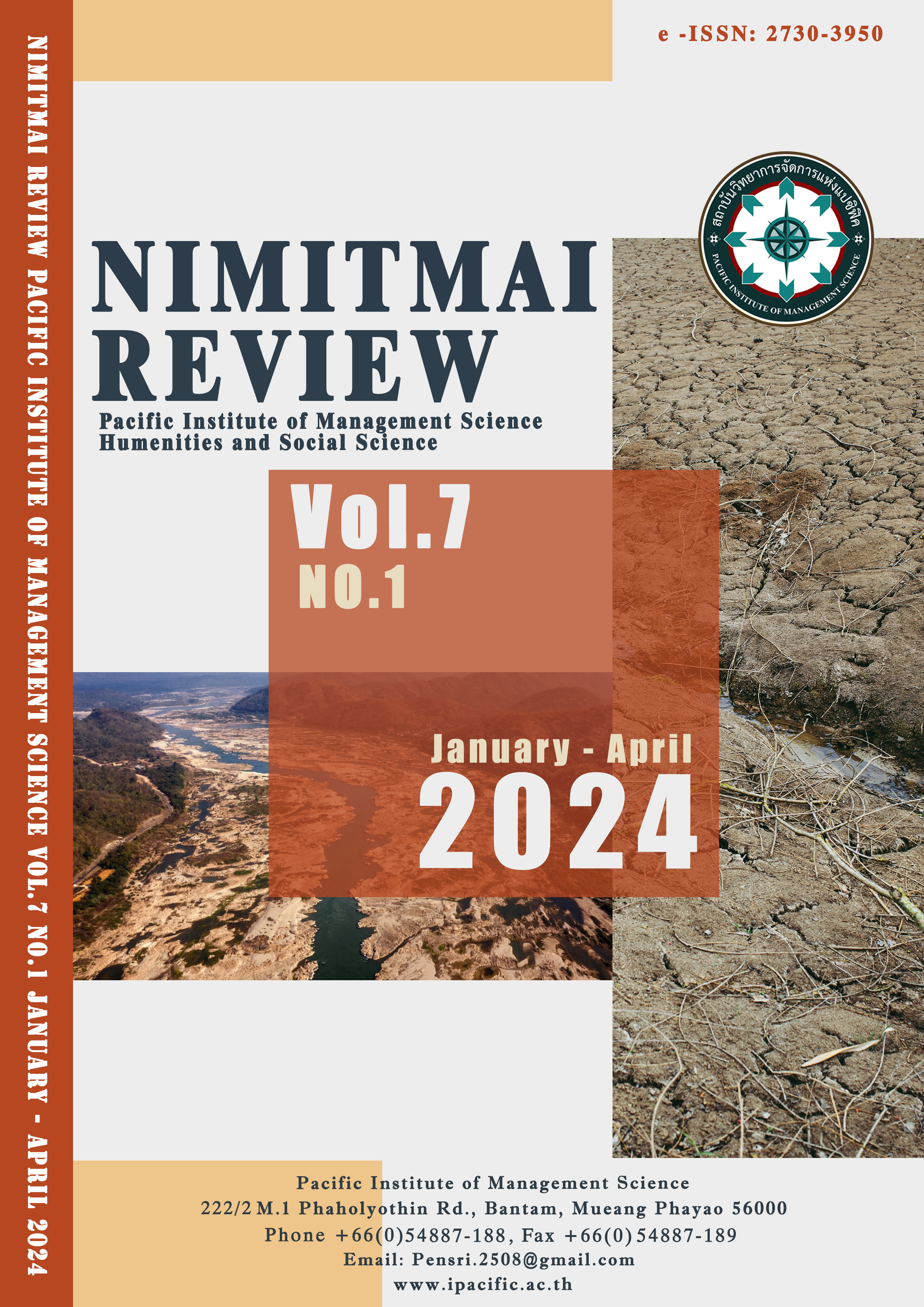The Effect of Using Enjoying Learning English through Edutainment to Enhance English skills for EFL learners
Keywords:
Enjoying Learning English through Edutainment, English skills, EFL learnersAbstract
This research aims to study the effect of using English learning through edutainment to enhance English skills for EFL learners, to improve low achievers’ English skills (listening, speaking, reading, grammar, and vocabulary), and to enhance low achievers’ positive attitudes towards English learning. This investigation was conducted using a quantitative approach. Target sampling was used to select 22 undergraduate students re-enrolled in the English Communication course in the second semester of the academic year 2022 as the study's sample size. Data analysis tools such as SPSS and t-tests were employed. The findings show that the majority of participants noted that learning English through edutainment could increase their confidence in learning English. They could learn English not only through books but also through music, animations, or movies on the Internet. They stated that they could apply the knowledge they had learned in their daily lives and their normal English classes. They opined that the class enjoyed and wanted to learn more in normal classes. The average score on the pretest was 13.91 = (1.93), whereas that on the posttest was 32.95 = (1.84). The average score of the post-test (32.95) was significantly higher than the average score of the pre-test (13.91). On average, the evaluation was satisfactory for the participants. The mean score is 3.82. The standard deviation is 0.39. According to the survey of the statements of the activities, the participants satisfied the evaluation that they were informed of the criteria before studying (the highest X-bar is 4.23), whereas the clear criteria for evaluation had the lowest average satisfaction score (X-bar = 3.86; S.D. = 0.35).
References
Anderson, N. J. 1999. Exploring Second Language Reading: Issues and Strategy. Boston, MA: Heinle.
Buckingham, D. & Scanlon, M. (2000). That is edutainment: Media, pedagogy and the market place. Paper presented to the International forum of researchers on young people and the media, Sydney.
Barlett, F. C. (1932). "Remembering: A study in experimental and socialpsychology. Cambridge University Press, UK.
Baker, L. & Brown, A. L. (1984). Metacognitive skills and reading. In P. D. Pearson, R. Barr, M. L. Kamil and P. Mosenthal (Eds.) Handbook of Reading Research (353-394). New York: Longman.
Bado, N.& Franklin. T.(2014). Cooperative Game-based Learning in the Englishas a Foreign
Language Classroom. Athens.
Cambridge: Richarod J. & Rodgers, T. (2002). Approaches and Methods in Language Teaching. (2nd ed). Cambridge University Press.
Dale, E. a. (1999). Techniques of Teaching Vocabulary. Rotterdam: Field Educational
Publication Incorporated.
Dirkes, M.A. (1985). Metacognition: Students in charge of their thinking. Roeper Review: A Journal on Gifted Education, 8(2), 96–100.
D. (2000). Techniques and principles in language teaching. Oxford: Oxford University Press.
Google. (2023). Global education monitoring report: technology in education: a tool on whose terms?. https://doi.org/10.54676/UZQV8501
Gee, J. P. (2003). What Video Games Have to Teach Us About Learning and Literacy. New
York: Palgrave Macmillan.
Guido, M. (2016). 5 Steps to Implementing Game-Based Learning in the Classroom. Toronto: Ryerson University.
Huang. (1993). A distant education TEFL programmed pilot material: Module five the general principles of teaching writing. Singapore: SEMEO Regional.
Jonassen, D., et al (1995). Constructivism and computer mediated communication in distance
education. American Journal of Distance Education, 9(2), 7-26.
Jordan, R. R. (1997). English for academic purpose. A guide and resource book for teachers.
Krashen, S. (2007). Free reading in school: Three hypotheses. Paper presented at the 2nd
CELC International Symposium for English Language Symposium, Singapore. Larsen,
Nazleen, S., Rabu, A., & Talib, Z. (2017). The Effects of Digital Game-based Learning on
Primary School Students' English Vocabulary Achievement and Acceptance. Penang.
Simanu , E., C. (2021). The Impact of Web 2.0 Technologies on American Samoan Middle Level Students’ English Vocabulary Performance. Doctoral Dissertation, Hawai’i
Silverman, D. (2013). How to Learn Board Game Design and Development. Retrieved from
tutsplus: http://gamedevelopment.tutsplus.com/articles/how-to-learn- boardgame-design-and-development--gamedev-11607
Stewick. (1972). Language Learning Teaching and Learning English. London: Longman.
Sukamolsa, S.(2008), Analysis and synthesis researched related in the field of Teaching English. Bangkok: Chulalongkorn University Pres
Thonglert. S. (2000). Comparison of English reading skills. Student certificate for a professional certificate using a computer assistant. (CAI) Supplementary Scriptural Teaching. Master’s Degree Thesis, Bangkok: Graduate Institute, Silapakorn University. Nakornprathom.
Wirayachitra A.et al (2012). Looking forward and looking back on English teaching. Bangkok: S. Asia Press.
Downloads
Published
How to Cite
Issue
Section
License
Copyright (c) 2024 Nimitmai Review Journal

This work is licensed under a Creative Commons Attribution-NonCommercial-NoDerivatives 4.0 International License.



